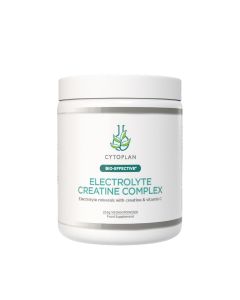Why do I need to take a postnatal supplement?
The postnatal period is a nutritionally and energetically demanding time and it’s important to ensure optimal intake of healthy nutrients. A high quality, nutrient dense diet and balanced lifestyle is the first step in supporting the health of both mother and baby. Adding in good quality nutritional supplements that replenish important nutrients is an excellent way of supporting this.
Breastfeeding vitamins
The fourth trimester is a journey of discovery and recovery, and if you have decided to breastfeed your newborn baby, it is also a time when your body requires extra nutrients.
Breastmilk is an ever-changing medium, providing differing levels of nutrients to support a baby's needs at various stages of growth. The quality of breastmilk will depend upon both your dietary intake and your body's nutrient reserves.
Dietary intake of some nutrients, such as the B Vitamins and choline, will directly impact the levels in your breastmilk. It’s therefore very important to have a regular intake of these throughout pregnancy and beyond.
Some nutrient concentrations in breastmilk, on the other hand, are resilient to changes in the mother's intake, such as vitamin D, calcium, iron, copper and zinc.
Supplying a growing baby with breastmilk will use nutrients from the mother's own stores, so it is very important that you are replenishing these to help maintain your own health as well as nurturing your baby's healthy development.
Nutritional considerations when breastfeeding
Maintaining good levels of iron is important for women whilst breastfeeding. It is essential for the newborn baby too as it is needed for the development of normal cognitive function.
The calcium requirement of a breastfeeding mother is particularly high. Calcium is essential for the growth of the baby's bones and teeth.
The mineral iodine is important during breastfeeding as it supports the baby's future neural development.
Vitamin D supports many important functions within the body including the normal function of the immune system and the growth and development of bone in children. Vitamin D3 is the most bioavailable form of this nutrient and is the form provided in Pregna-Plan.
The role of the various B complex vitamins is vast and includes contributing to normal energy metabolism, nervous system function, psychological function, and the reduction of tiredness and fatigue, to name just a few!
Our uniquely formulated, bioeffective breastfeeding supplements are designed to provide the very best support.
Why are omega-3 fatty acids important during pregnancy and breastfeeding?
Omega-3 intake during pregnancy and breastfeeding is important for a baby's brain development for the first two years of their life.
During the baby's first 6 months, the brain, which only accounts for 8% of body weight, accumulates almost the same amount of the omega-3 fatty acid, DHA, as the entire rest of the body!
DHA has important roles for the health of both mother and baby, and increasing evidence shows that infants fed breastmilk with a higher DHA content have better vision and neurodevelopmental outcomes.
The levels of omega-3 in breastmilk are largely determined by maternal levels and influenced by what mum eats, so ensuring excellent levels through diet should be a priority.
DHA can be obtained through eating oily fish, but due to the risk of toxicity and heavy metal accumulation in fish, or personal dietary preference, some may prefer a supplement providing great levels of DHA, such as those from marine algae which are suitable for vegetarians and vegans.
Do I need to take a probiotic whilst breastfeeding?
In the first year, a baby's microbiome requires a high proportion of bifidobacteria strains to help with the digestion of milk - and breastmilk has a diverse microbiota, plus nutrients that encourage the increase of health promoting bacteria.
It is estimated that 25-30% of a baby's gut bacteria will originate from breastmilk, so a probiotic supplement could help to support a healthy microbiome for both mother and baby.
How is nutrition for breastfeeding mothers different?
A new mother doesn't need to eat anything special whilst breastfeeding. Indeed, a varied and nutrient-dense diet is recommended for all new mothers to ensure optimal intake of all the essential nutrients.
A healthy diet includes:
- At least five portions of a variety of fruit and vegetables each day - more if possible!
- Starchy foods including pasta, bread, rice and potatoes.
- Plenty of fibre. Following birth some women experience bowel problems such as constipation, so plenty of fibre from wholemeal bread and pasta, rice and other grains, pulses such as beans and lentils, as well as fruit and vegetables is recommended.
- Protein such as lean meat and poultry, fish, eggs, nuts, seeds and pulses. The NHS advises that no more than two portions of fish a week is consumed whilst breastfeeding, including one portion of oily fish (mackerel, sardines, trout, salmon). A portion is around 140 grams.
- Dairy foods such as milk, cheese and yoghurt (as well as non-dairy alternatives) contain calcium and are also a source of protein.
- Plenty of water - always have a glass of water to hand when settling down to breastfeed.
Which breastfeeding multivitamin do you recommend?
Pregna-Plan is a comprehensive pregnancy and breastfeeding wholefood multivitamin and mineral supplement, uniquely formulated for all stages of pregnancy (pre, during and post). Importantly, it provides the current UK government recommendations of folic acid and vitamin D.
Pregna-Plan provides a total of 25 different nutrients including vitamin D, calcium, iron, iodine and all eight of the B-complex vitamins.
As a wholefood supplement, Pregna-Plan contains wholefood nutrients which are used by the body in the same way as food nutrients. Through replicating nature, we provide the best, most natural, and most bioeffective supplements that support the optimal health of a new mother through their breastfeeding journey.
Pregna-Plan is suitable for vegetarians and vegans.






